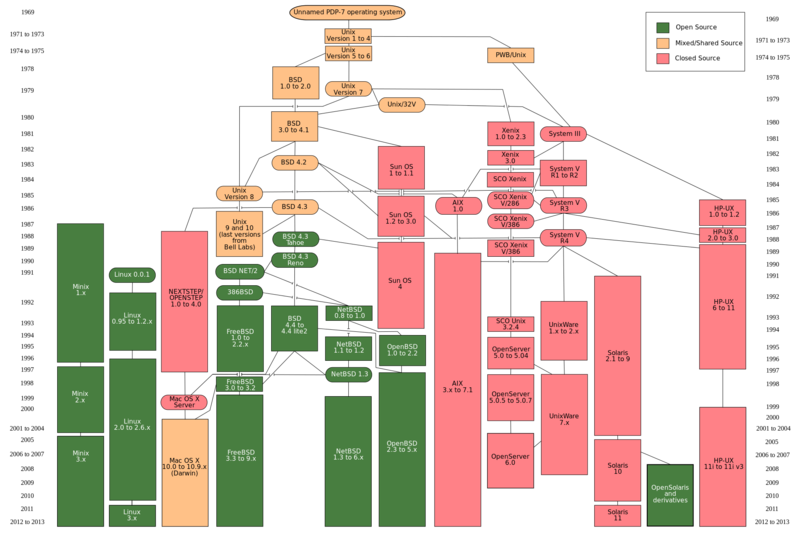Unix (Unics)
Unix originated from AT&T Bell labs to be used as
a programmers workbench to develop software before it became a program in its
own rite. It was a multi-tasking multi-user operating system (OS). It
originated from MULTICS that was developed in collaboration with MIT but became
too complex. A smaller version was developed under the name UNICS then renamed
Unix.
The computer it was initially designed to run on was
the DEC PDP11/12, written in assembly language. This was then updated and
written in ‘C’ a feat that was thought couldn’t be done due to assembly being
more time efficient. This made Unix portable as written in C it could be
compiled to run on other systems.
As AT&T couldn’t enter the computer industry due
to an Anti-trust treaty of the telephone industry, anyone who wanted the
program would have to be given it. To get around giving away the program for
free it would issue licenses for corporate companies and Universities. The
license fee was small for Universities so became popular. ARPA became very
interested in Unix to run on its network (this became an internetwork).
Berkley University in California further developed
Unix in parallel with AT&T with BSD Unix. When AT&T and Bell labs were
broke up under another antitrust treaty, AT&T were now able to enter the
computer market but as the license fees increased more companies used the BSD
version of Unix.
Before the micro computer market appeared, Unix was
expected to be the number one OS, AT&T made great improvements in the
program and then collaborated with Sun and BSD to create a newer version called
System V release. Trusted versions of Unix from the likes of DEC were used by
the Military because of its high security.
The pronunciation of linux can be heard from the
creator at the link below
Linux is used in
embedded circuits, the newest on being the Raspberry pi. It is also found in
the Android system where it uses the linux kernel. Almost all circuits that use
an operating system use some sort of linux based operating system.
As for Unix, if it didn’t exist DARPA wouldn’t have
pushed its ARPAnet so far. Otherwise you might not be accessing and reading
this blog.

The Unix family tree http://en.wikipedia.org/wiki/File:Unix_history-simple.svg
No comments:
Post a Comment